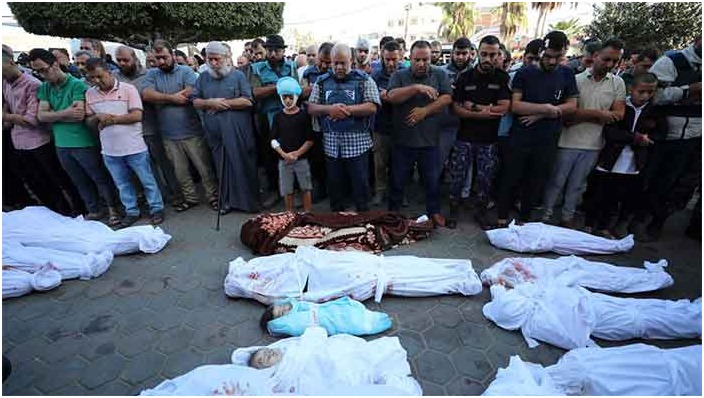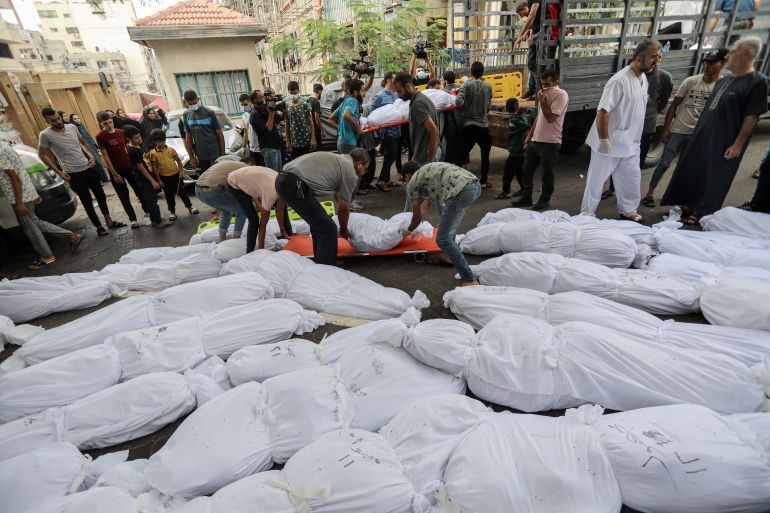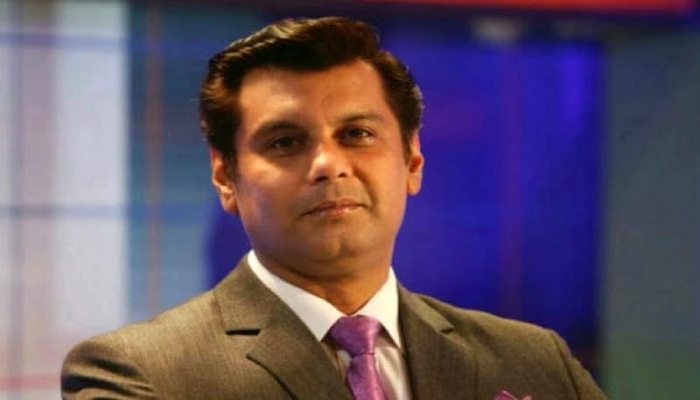THE MAKING OF HISTORY
0 comments | by IKram Sehgal

History was in the making on the afternoon of Friday Nov 14 2014. Throwing aside diplomatic norms, Ashraf Ghani on his first State visit to Pakistan after being sworn in as Afghanistan’s President, visited GHQ immediately after landing at Islamabad. Former Pakistani Ambassador to Kabul Rustam Shah Mohmand commented that a foreign Head of State heading straight towards a military HQ on arrival carries a lot more than ceremonial importance, “the Afghan President means business, he knows where the real power rests”. He does indeed!
With the Pakistani PM still winging his way back from UK, Mian Nawaz Sharif’s pointman for Afghanistan, PM’s National Security and Foreign Affairs Advisor Sartaj Aziz, who met Ashraf Ghani soon after his inauguration as President, represented the Cabinet. Ashraf Ghani remarked he had immediately made up his mind to accept Gen Raheel Shareef’s invitation to visit GHQ when the COAS visited Kabul a few days earlier. These visits, alongwith that of newly appointed DG ISI Lt Gen Rizwan Akhtar only two days after assuming office, triggered a visible change in Kabul’s attitude towards Pakistan.
A pragmatic and detailed GHQ briefing outlining the developing regional security environment post-2014, in particular the emerging IS threat, evoked spontaneous and warm response. Paying tributes for the sacrifices made by our soldiers, President Ghani said his unprecedented GHQ visit underscored a firm resolve for strengthening bilateral security and defence ties, his delegation therefore included the entire range of Afghan civilian and military hierarchy, First Deputy Chief Executive Mohmand Khan, Abdullah Abdullah’s No. 2 late Ahmad Shah Masood’s brother, Ahmad Zia Masood, Special Envoy to the Afghan President, Ashraf Ghani’s closest confidante, National Security Advisor Mohammad Hanif Atmar, Afghan Defence Minister Gen Bismillah Muhammadi and the Chief of the General Staff Gen Sher Muhammad Karimi. Not physically present, Vice President Gen Rashid Dostum and Gulbadin Hikmatyar were represented. All decisions would have the full backing of all the political and military leadership of Afghanistan.
Among major decisions taken during the GHQ meeting, real-time intelligence sharing, brigade strength training for Afghan defence and security personnel, avoiding unnecessary recrimination through the media or through any third party, facilitated by a hot link between the two armies, etc. Army Chief Gen Shareef emphasized that a peaceful and stable Afghanistan being in the best interests of Pakistan, the only way to ensure regional security was to treat terrorism ‘as our common enemy’, preventing militants in sanctuaries on either side from crossing the porous 1,500 mile long border. Afghan Defence Minister Bismillah Muhammadi went even further, “a proposal for “joint military” that was also floated might ‘likely become a reality soon.”
Terming the full-fledged and multi-faceted talks between the Pakistani PM and himself an enormous achievement the Afghan President summarized it as, “a shared vision to serve as the heart of Asia, ensuring economic integration by enhancing connectivity between South and Central Asia through energy, gas and oil pipelines becoming a reality and not remaining a dream. In the narrative for the future for our people, the most neglected of our people are going to become stakeholders in a prosperous economy and in stable and peaceful countries, our faiths are linked because terror knows no boundaries.” In statesmanship par excellence that the people living across the divide of the Durand Line have been bereft of during the Karzai-decade of venom and hatred, Ashraf Ghani commented, “We have overcome obstacles of 13 years in three days, we will not permit the past to destroy the future.”
That danger of destroying the future is from the “spoilers” with a vested interest to protect their “nuisance value” by keeping the region unstable. Paid elements in the Pakistani media were activated at short notice, “how come the Afghan President visited GHQ directly without being accompanied by (or having met) the President, PM or any senior Cabinet Minister?” With militants fighting against Pakistan likely to lose their Afghan safe havens, their religious proxies are already going to town against our security establishment. Both Afghanistan and Pakistan have to be very watchful about incidents and instigation, an all-out effort will be made to create problems. Take for example the remarks wrongfully attributed to Sartaj Aziz that “militants posing no threat to Pakistan should not be targetted”. Taken out of context it was a blatant misrepresentation meant to embarrass the Army Chief during his US visit.
With Hamid Karzai singularly fixated on anti-Pakistan rhetoric, bilateral ties had remained quite frosty. Once Ghani took office, his most important step was cancelling the arms deal his predecessor had concluded with India. Pakistan does not protest India’s friendship with Afghanistan but that cannot be used as a platform against Pakistan. Determined to have honest cooperation and friendship, the new Afghan President seems bent on bringing about a paradigm change for the better. Given the genuine open-heartedness and bonhomie seen and felt during the visit, there has never been an opportunity as favourable as exists today.
The day after the GHQ visit the Indian media went berserk, reacting adversely to the rather sudden and unexpected rapprochement between the Afghan and Pakistan security establishments. The decades of vitriol that India had instilled within the Afghan military psyche took less than two hours to dissipate. By the time the MI-17 helicopter carrying the Afghan President took off from GHQ around 5 pm, the “great game” had undergone a 180º sea change. The visit of the COAS Gen Shareef to the US thus gained added importance. The US can only feel relieved and satisfied that the rapprochement it has trying for the last decade to stabilize the region has finally taken place. In the face of the developing IS threat, the Pakistan Army’s role is of critical importance to the peace and stability of the region. Which other Army in the world has taken on Jihadists successfully?
Even given the historical affinity the love-fest realpolitik will dominate emotions, a cold calculated pragmatic realism based on economics. Dependant upon “revenues” from those passing through their geographical location for centuries, Afghans stand to make billions of US dollars from royalties on gas pipelines, power transmission lines and traffic on the “Central Asian Corridor”. Economically Pakistan may not need Afghanistan as much as Afghanistan needs Pakistan but without gas and power, our economic resurgence will remain moribund. Both countries stand to gain exponentially.
Accolades are appropriate for the Sharif govt for a most significant major foreign policy success, and one daresays, both a political and economic force-multiplier. For the first time in three decades we can look with some hope for peace and stability in the region. Mian Sahib must now look inwards and carry out the electoral reforms vital for both political and economic emancipation of the masses.





